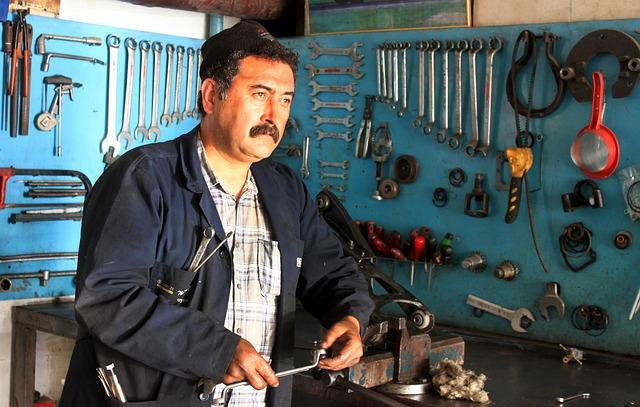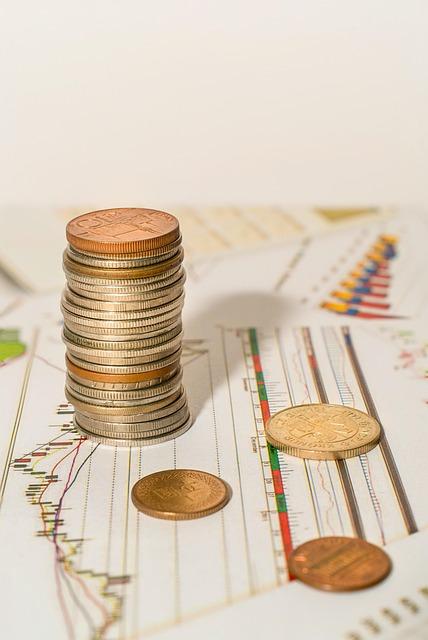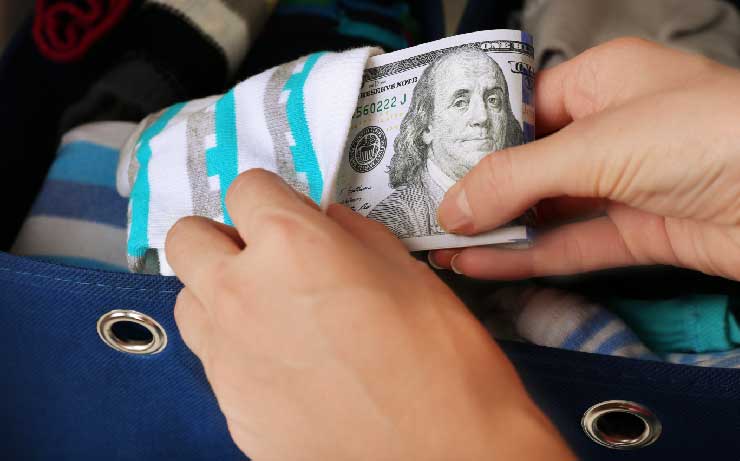hey there! Ever wonder what an economy expert is really thinking when they talk about your wallet? Sure, they throw around terms like “inflation,” “interest rates,” and “market trends,” but what does it all mean for your everyday spending, saving, and stressing over bills? In this post, we’re cutting through the jargon and getting straight to the heart of what the pros actually think about your money—and how you can make their insights work for you. Ready to hear the truth behind the numbers? Let’s dive in!
How Your Everyday Spending Habits Are Secretly Shaping Your Financial Future
Think your daily coffee run or that late-night online splurge is just harmless fun? Think again. These small choices are like dominoes, quietly nudging your financial trajectory over time. An economy expert would tell you that micro-decisions about spending — whether on subscriptions, dining out, or impulse buys — act as a compound interest multiplier, but for your debt or savings. The key? Awareness and consistency. When you identify habits such as:
- Automatized payments for unused services
- Repeated small luxury purchases
- Overreliance on credit over cash
you unlock the ability to reshape these patterns before they turn into financial stress. Awareness is your first weapon against unconscious budget leaks.
Here’s a quick look at how small monthly overspending can add up over a year:
| Habit | Monthly Cost | Annual Impact |
|---|---|---|
| Daily $5 coffee | $150 | $1,800 |
| Unused streaming services | $30 | $360 |
| Impulse buys | $50 | $600 |
Imagine redirecting even half of these funds into an emergency or retirement fund — your wallet doesn’t just breathe easier, it grows stronger.Small changes today make your financial future less about surviving and more about thriving.

Why Saving Small Amounts Now Pays Off Big Later
Think of saving like planting seeds. Even the tiniest contributions—whether it’s $5 or $20 a week—can grow into something ample over time because of compound interest. It’s not about starting big; it’s about starting smart. Skipping that daily coffee or opting for a home-cooked meal might seem small, but those dollars saved regularly stack up and multiply exponentially. This means your future self will thank you, especially when unexpected expenses or exciting life milestones come knocking.
Here’s a quick snapshot to show you how much a little effort pays off if you start today and keep at it:
| Weekly Savings | Interest Rate (Annual) | After 10 Years | After 20 Years |
|---|---|---|---|
| $10 | 5% | $7,000 | $20,000 |
| $15 | 7% | $12,500 | $38,000 |
| $20 | 6% | $15,000 | $45,000 |
- Consistency beats intensity: saving a little every week trumps occasional big deposits.
- Start early: Time gives your money the magic of compounding.
- Be patient: Watching your money grow is a marathon, not a sprint.

The Truth About Credit Cards and How to Use Them Without Stress
Credit cards often get a bad rap, but the reality is they’re powerful financial tools—if you use them smartly. The key is to treat your card like cash, not free money. Paying your balance in full each month helps you avoid interest, making the credit card an excellent way to build your credit score and keep track of expenses. Also, don’t fall for the trap of minimum payments; they can turn a small debt into a mountain overnight. Remember: the *real* stress comes from poor habits, not the card itself.
Managing credit means embracing a simple set of rules that protect your wallet and sanity concurrently:
- Set a budget: Know exactly what you can afford to spend before swiping.
- track expenses: Use apps or statements to avoid nasty surprises.
- Use rewards wisely: Cashback and perks only benefit you when you’re financially disciplined.
- Stay informed: Understand fees, interest rates, and terms.
Below is a quick glance at common credit card fees you shoudl watch out for:
| Fee Type | Typical Cost | How to Avoid |
|---|---|---|
| Annual Fee | $0 – $550 | Choose no-fee cards or evaluate if rewards justify it |
| Late Payment | $25 – $40 | Set up automatic payments or reminders |
| Foreign Transaction | 1% - 3% per transaction | Use cards with no foreign transaction fees |
| Cash Advance | 3% – 5% plus high interest | Avoid using cash advances when possible |
Investing Basics Every Wallet Should Know (Even If You’re Not a Pro)
Getting started with investing doesn’t have to feel like decoding a secret language. It’s about understanding a few core principles that can power up your financial game, no matter your experience level. First up: diversification. Think of your investments like a playlist — mixing different genres (stocks, bonds, real estate) helps balance the vibe if one tune falls flat. Also, patience is your best friend.The market isn’t a rollercoaster you need to scream over every dip; it’s more of a marathon where steady pacing wins. Remember, even small, consistent contributions add up like compound interest magic.
Ready to get tactical? Here’s a simple checklist to keep your wallet happy and healthy:
- Set clear goals: Know what you’re investing for — a new home, retirement, or that dream trip.
- Know your risk: Are you chill or thrill-seeking? Your comfort helps shape your portfolio.
- Keep fees low: High fees eat your returns like a sneaky tax. Choose funds with expense ratios below 1%.
| Investment Type | Risk Level | Expected Return |
|---|---|---|
| Stocks | High | 7-10% annually |
| Bonds | Medium | 3-5% annually |
| Savings Accounts | Low | 0.5-2% annually |
Unexpected Money Traps to Watch Out For and How to Dodge Them
Money traps are sneaky pitfalls disguised as “good deals” or unnoticed fees that stealthily drain your wallet. Things like subscription services you forgot to cancel, surprise ATM withdrawal fees, or even those “free” apps filled with in-app purchases can quietly add up month after month. Even loyalty programs can backfire if you’re spending more to earn points than you actually save — a common trap that keeps your budget stretched thin without you realizing it.The key? Regularly audit your expenses and question every automatic payment or recurring charge.If something doesn’t spark joy or clear value, it might be time to hit “unsubscribe.”
Another underestimated culprit is the impulse buy, especially online.Retailers are pros at creating urgency with countdown timers or limited-time offers, making it hard to resist that “too good to pass up” deal. But here’s a quick trick: put items in your cart, close the tab, then sleep on it. If it’s still appealing the next day, great—if not, you just dodged an avoidable splurge. Below is a quick cheat sheet of common money traps and their easy fixes to keep you ahead of the game:
| Money Trap | Why It’s Sneaky | How to Dodge |
|---|---|---|
| Unused Subscriptions | Invisible monthly withdrawals | Use apps to track and cancel |
| Impulse Online Buys | Flash sales and countdown timers | Delay purchase, reconsider next day |
| Hidden ATM Fees | Charges from out-of-network ATMs | Use your bank’s ATM or cashback |
| Reward Program Overspend | Spending more to earn points | Track points vs. spending ratio |
Q&A
Q&A: What an Economy Expert Really Thinks About Your Wallet
Hey there! Ever wonder what those economy experts REALLY think about your spending habits, your savings, or that big purchase you’ve been eyeing? We sat down with Jane Thompson, a seasoned economist, to get the inside scoop.Spoiler: It’s not as scary as you think!
Q: So, Jane, what’s the biggest misconception people have about their personal finances?
A: People often think the economy is this huge, confusing monster that just dictates their wallet’s fate with no input from them. Truth? Your personal choices do matter—like budgeting, saving, or investing—even if the bigger economic forces are out of your control.
Q: Should I be freaking out about inflation every time I go grocery shopping?
A: Nope! Inflation sounds scary, but it’s kind of normal for prices to go up a bit over time. The key is not letting it catch you off guard.Try tweaking your budget or hunting for deals, rather than panicking. And keep an eye on your wages—if they’re rising too,you’re actually in a better spot than you think.
Q: What about those big-ticket buys—house, car, fancy tech? When’s the right time?
A: Honestly? There’s no perfect time. Do your homework: Can you afford it comfortably without tanking your emergency stash? If yes, go for it. If not, maybe wait or find a cheaper choice. The economy will keep doing its thing regardless—you just want to make choices that don’t stress your day-to-day life.
Q: How vital is saving money right now? Should I be hoarding cash?
A: Saving is always smart but balance is key. parking all your cash under the mattress isn’t ideal because of inflation eating away at its value. Look into a mix of emergency funds, some safe investments, and a little fun money so you’re covered but not miserable.
Q: Any quick tips for making my wallet a little happier?
A: Sure thing! Track your spending (apps make this easy), set small savings goals, avoid impulse buys, and don’t be shy about negotiating—whether it’s your bill, salary, or price on that couch. Small actions add up.
Q: Last one—should I be listening to every financial headline?
A: Nope. The news is designed to grab your attention and sometimes exaggerates swings and scares. Stick to trusted sources,focus on your own plan,and remember: the economy moves in cycles,and patience pays off.
There you have it—straight from an economy pro.Your wallet’s not doomed; it just needs a little TLC and some smart moves. Got more questions? Drop them below!
In Summary
So, there you have it — a peek into what an economy expert really thinks about your wallet. The truth is, while the financial world can feel like a whirlwind of confusing jargon and unpredictable twists, at the end of the day, it’s all about making informed choices that fit your life. Sure, experts throw around all kinds of complex theories and data, but what really matters is how you use that info to keep your wallet happy and healthy. Keep curious,stay savvy,and remember: your financial journey is fully your own. Until next time, happy budgeting!











